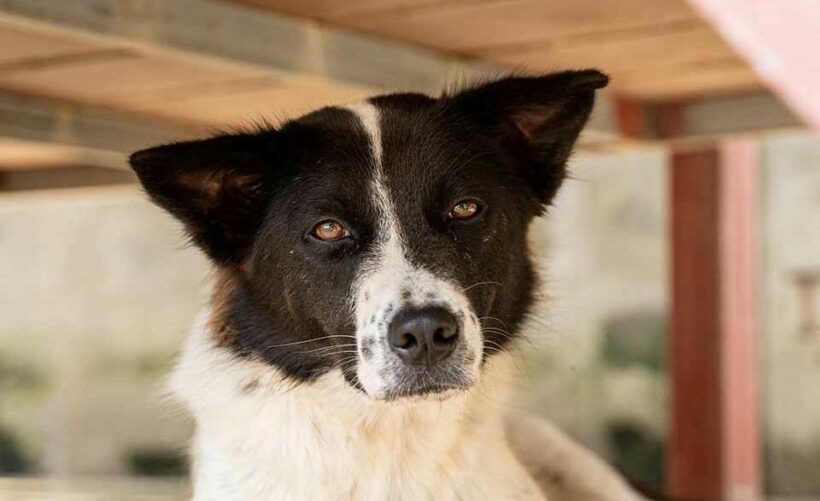Dog poisonings on the rise in Thailand, how to adopt them

A woman in the northeastern province of Nakhon Ratchasima claims she has evidence that seven of her beloved dogs have been poisoned to death. She thinks she knows who the culprit is and has filed a complaint at the local police station in the hope they will be prosecuted. Dog poisoning is sadly a regular occurrence all over Thailand, with both stray dogs and family pets often subjected to lethal attacks.
Seven out of ten dogs belonging to 44 year old Pritsana Khaokratok have died from poisoning, she reported today. She claims her dogs have been poisoned over ten times. One of her neighbours dogs also died from expected poisoning.
Pritsana has evidence of the blue pills used to poison the dogs, which she is using to support her police complaint at Nakhon Buri Police Station. Pritsana suspects one of her neighbours is the culprit and says the person has poisoned many pets in the local area. She has tried to speak to them about their motivations but Pritsana said the suspected culprit refused to speak with her.
The events have instilled fear into the hearts of local dog owners, who have resorted to tying up their dogs with chains or keeping them in cages to protect them from the neighbourhood’s serial dog poisoner.
Thailand’s streets are overrun with dogs. Many of the ‘soi dogs’ are born on the streets and don’t have owners. Many of the dogs on the streets do in fact have owners but are given the freedom to roam the streets. Usually, the dogs with owners wear collars.
Thailand’s street dogs are not for everyone. They often hang out in packs and sometimes attack pedestrians or motorcycle riders. Sometimes the attacks can’t be helped. However, in most cases, making yourself look big, growling and stomping your feet at the dog is usually enough to scare it off. Street dogs can smell fear and those who run the other way are usually the ones to get chased and, rarely, attacked.
If you live in or travel to Thailand, it is recommended to get vaccinated against rabies. If you get bitten by any wild animal, it is recommended to seek medical help immediately and get a postexposure prophylaxis (PEP) rabies shot.
Some people take it upon themselves to tackle the problem of soi dogs by poisoning them. Other times, family pets are targeted in their own yards, of which the motivation can’t really be explained. It’s assumed that only a sliver of the dog poisonings that take place across the country actually get reported.
Thailand’s dogs need help. There are many NGOs throughout the country who take street dogs in, get them vaccinated and either release them back into the streets or look for ways to rehome them. However, the number of stray dogs in Thailand, estimated to be around 1 million, far outweighs the capacity of the organisations who often have no government funding and rely on donations to operate.
Many of the organisations rely on donations from tourists, and with the pandemic ravaging travel to Thailand for so long, many of the organisations are in dire need of support.
If you want to adopt a dog, make a donation, volunteer or simply learn more about the people helping Thailand’s stray dogs, check out the following organisations…
Saved Souls Foundation (Khon Kaen), Rescue Paws Thailand (Hua Hin), Soi Dog Foundation (Phuket), WVS Thailand (Chiang Mai), Jai Dog Rescue (Nakhon Nayok), TMTRD (Chonburi), Pat the Dogs (Nonthaburi), Happy Dogs Koh Chang (Trat), Dog Rescue Thailand (Rayong), Bodhi Dog Shelter (Phuket).
Some pages like Furget me not Thailand and The Adoptable Puppy Cafe post about dogs who need adopting in English.
SOURCE: KhaoSod
Latest Thailand News
Follow The Thaiger on Google News:


























